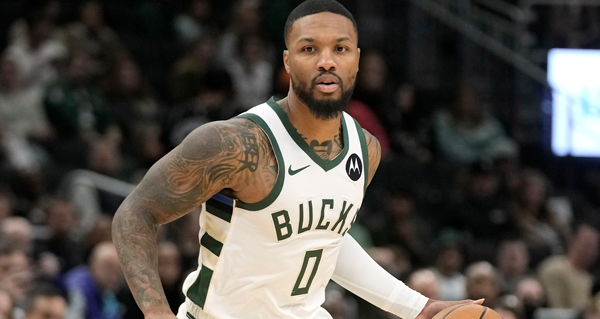Since the 2024 NBA All-Star Weekend, much has been said—most of it extremely negative—about the state of the league’s annual showcase. There’s no need to summarize all that here, as you’ve probably heard it, and can definitely find those critiques without much effort. A lot of people with podcasts want to “fix it.” The first big question that emerges when consuming these invectives, though, is how much it actually matters. We are told, in the hazy business-talk that’s increasingly important for the sport’s media members to become fluent in, that All-Star festivities are a big part of what the NBA sells to its TV partners. But the claim is hardly quantified.
We do know that, in decades past, the game fundamentally mattered a lot more. It really was a singular display. Broadcast technology was far more limited, with a lot of players barely appearing on your TV. You’d sometimes see their highlights on Sportscenter, or catch their statistics in the newspaper, and get curious. You knew your chance to watch them more would come on a special Sunday night in February, unless their team made a deep playoff run. But that probably wasn’t going to happen for the likes of Vin Baker, Glen Rice, Chris Gatling, or Latrell Sprewell.
If any of those guys played now, they’d be available on League Pass multiple times a week, and exposed significantly on YouTube and other social media channels. You could see them instantly. This is hardly a profound realization, and may seem like trite old-man stuff to even mention—but, often times, it seems that those getting red-faced when discussing the state of the NBA haven’t taken time to consider that we’ve been going through—and are still going through—an unprecedented revolution in technology, which impacts everything, most definitely including the umbrella of culture that this storied basketball hullabaloo fits under.
So, yes. The players don’t care as much anymore. The formerly big glitzy weekend is now just gilded, one more of thousands of opportunities to be seen every season. The fans, who are more than capable of reading human energy and vibes, follow suit, and don’t care so much either. Media members, paid to care and inject the world with opinions heated enough to get everyone riled up, exaggerate a problem that maybe doesn’t even exist. It’s hard to say; again, we’re not actually inside the financial black box when we take the macro-view with the NBA, and maybe the most fallacious element of how the sport is professionally discussed these days is how frequently we pretend that we are. It all ends up sounding like the third grader who insists that he knows about the next top-secret Mario game, because his uncle works at Nintendo.
Usually, the panic about the quality and popularity of the All-Star game fits nicely into a broader pattern of hysterics about how much smaller of a social place the NBA takes up, relative to the NFL. This, also, does not matter. While one may be ensnared into culture-war bloodlust over What The Most Popular Thing Is—a decidedly Prom Meltdown form of cognitive existence—generally speaking, you’re doing pretty well when the thing you’re working in service of is a global entertainment company worth at least a hundred billion dollars.
Modern players understand this, and that the value of both their own careers and the NBA overall is too complex and international to be understood through what happens in a single pompous weekend. The result of this awareness is a hilarious detachment from the history of pride, showmanship, and regalia that All-Star weekend has tended to represent. Instead we have mild jogging from one three-point arc to the other, flat expressions throughout chucking a historic volume of stakes-free long balls, and a lot of yawning and fuzzy half-answers during media barrages about what the game really stands for, and how contested it might be.
The only way you’ll find real competition is if you’re looking out for who acts the goofiest. There, the power rankings get interesting. Chumminess, tomfoolery, mirth, gimmickry, and levity abound. This is some extremely silly stuff, and everyone is one-upping each other for the dunce cap. If there is a meaningful future for the All-Star Game, it should be in further exploring the range of this dopey anti-competition. If we’re not going full Three Stooges, what are we doing here? Cut down the limp curtain of competitive pretense, and let us see more of what’s really there: an absurd weekend with the fellas, letting loose after four hard months at work.



